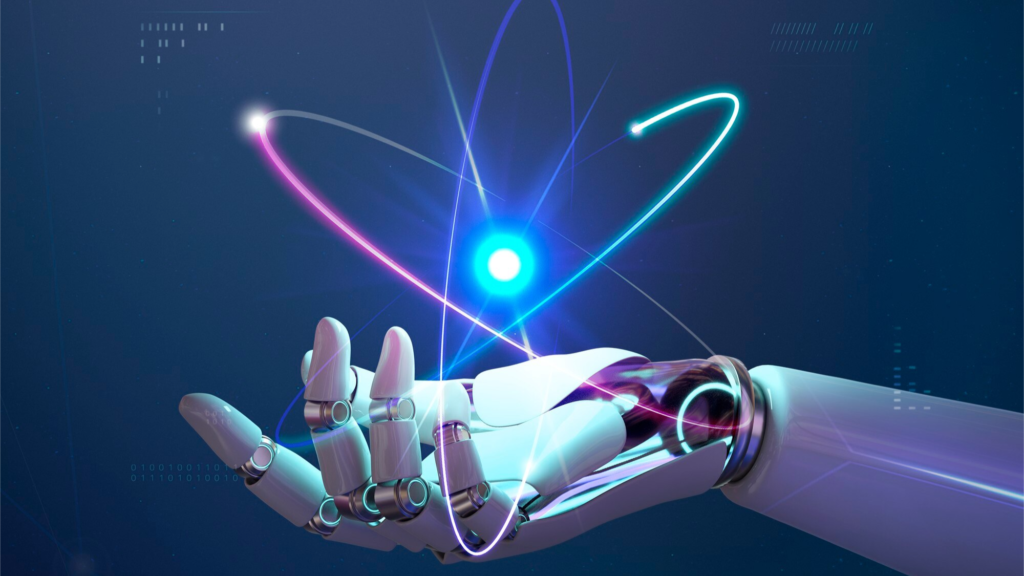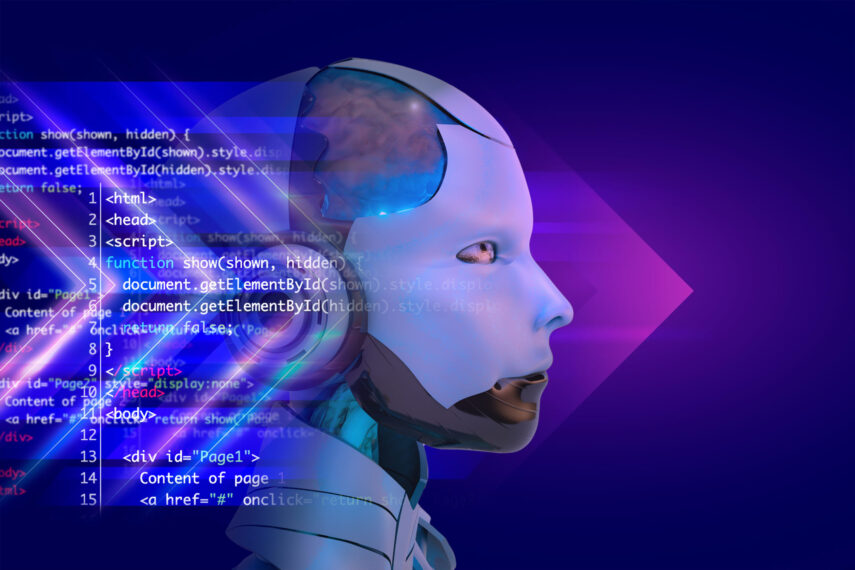The application of artificial intelligence in software development improves processes by minimizing mistakes while speeding up workflows through automated procedures starting from code development up to error identifier systems. Modern business development uses AI-based tools to enhance cycle efficiency as well as improve software quality which results in better user experiences. Throughout this analysis, we will explore the impact of software development AI on modern development practices.
How AI is used in software development?
Code Generation
AI-powered software and tools such as GitHub Copilot together with OpenAI Codex along Tabnine provide developers with context-based code recommendations that shorten the development period and enhance their productivity. Through code analysis of extensive repositories, these tools deliver real-time suggestions and auto-complete functions while also providing boilerplate code templates for typical programming tasks.
Bug Detection and Fixing
AI-driven static code analysis tools such as DeepCode and SonarQube identify vulnerabilities, syntax errors, and logic flaws. AI for software development can predict potential errors, suggest fixes, and automate corrections, reducing the time spent on troubleshooting.
Testing Automation
AI software accelerates software testing by automating unit, regression, and performance testing. Tools like Test.ai and Applitools leverage machine learning to detect UI inconsistencies, optimize test cases, and execute automated tests across multiple environments.
Project Management
Artificial intelligence in software engineering enhances project management by analyzing deadlines, team efficiency, and task dependencies. Tools like ClickUp and Jira use AI to suggest task prioritization, automate sprint planning, and allocate resources based on historical project data.
Documentation
Documentation tools like Mintlify and CodiumAI, automatically create, update, and organize technical documentation. Natural language processing (NLP) models summarize complex code, generate explanations, and improve knowledge sharing within development teams.
Refactoring and Optimization
AI in software engineering can help to optimize existing code by detecting redundancies, improving performance. Tools like CodeClimate and Sourcery suggest cleaner and more efficient code structures, leading to better maintainability.
Security Enhancement
AI-powered software like solutions like Snyk and Checkmarx identify vulnerabilities in source code, detect anomalies, and predict potential cyber threats. AI for software engineering also automates security patching and enhances code security by analyzing attack patterns.
DevOps and CI/CD Pipelines
AI optimizes DevOps workflows by automating deployments, infrastructure scaling, and server performance monitoring. AI-powered CI/CD tools predict deployment failures, recommend fixes, and maximize server configurations, improving system resilience.
UX Design
AI enhances user experience (UX) design by analyzing user behavior, predicting preferences, and personalizing interfaces. Tools like Figma’s AI-powered features suggest layout improvements, color schemes, and design elements based on user data and trends.
Architecture Design
AI assists in designing scalable and efficient software architectures by analyzing project requirements and identifying optimal patterns. AI-powered tools analyze system dependencies, recommend best practices, and simulate performance scenarios to prevent architectural bottlenecks.
The impact of AI on the software development lifecycle (SDLC)

Requirement Gathering and Analysis
AI enhances the initial phase by analyzing market trends, user feedback, and historical data to generate insights for defining project requirements. Natural Language Processing (NLP) tools like IBM Watson extract and structure requirements from client discussions, documents, and user reviews, reducing ambiguity.
Design and Planning
AI-driven tools assist in architecture design, resource allocation, and risk assessment by simulating various scenarios. AI algorithms analyze past projects, identify potential bottlenecks, and suggest optimized design patterns. Automated planning tools, like AI-powered Jira, recommend sprint structures and workload distribution for efficient project management.
Development
AI in application development automates code generation and assists developers with smart code suggestions. Tools like GitHub Copilot and Tabnine help developers write optimized, error-free code by predicting functions and syntax. AI-powered code review tools, such as DeepCode, detect vulnerabilities and recommend best practices, improving code quality and security.
Testing
AI for developers accelerates unit, integration, and performance testing by identifying anomalies, generating test cases, and reducing human errors. Tools like Test.ai and Applitools use machine learning (ML) models to enhance visual and functional testing.
Deployment
AI streamlines CI/CD pipelines, automating deployment, rollback strategies, and infrastructure scaling. Software engineer artificial intelligence analyzes historical deployment data, predicts failures, and optimizes release schedules. Google Cloud AI and AWS AI services help in automating server management and workload distribution.
Maintenance and Support
AI-powered predictive analytics anticipates system failures and recommends proactive maintenance. AI-driven chatbots and virtual assistants handle customer support by diagnosing common issues and providing real-time solutions, reducing human intervention in routine troubleshooting.
Documentation
AI-driven systems produce easy-to-comprehend summaries while transforming complicated code structures into documentation text and managing document versions. AI technology within Mintlify produces API documentation which enhances both knowledge transmission and employee onboarding procedures.
Feedback and Continuous Improvement
AI data processes both feedback and bug reports from users together with software performance tracking after releases. Google's AI-based insights tools can identify customer trends alongside system pain points to provide recommendations for future enhancements. The real-world usage data analysis enables continual software enhancement.
What AI means for software engineers?
AI in application development generates code, detects bugs, and optimizes workflows, engineers can focus on higher-level problem-solving and system design. Instead of replacing developers, AI acts as a collaborator, handling routine tasks and improving software quality. However, this shift demands new skills—understanding AI frameworks, machine learning principles, and ethical considerations in AI-generated code. Engineers who adapt to this evolution will not only stay relevant but also unlock new career opportunities in AI-driven development.
Who Can Leverage AI in Software Engineering?
AI in software revolutionizing engineering. It’s not just for developers: various professionals across the software industry can benefit from AI-driven tools and automation.
Benefits of AI for Developers and Software Teams
- The application of AI by QA engineers includes automated testing together with vulnerability identification and improved software dependability. Machine learning platforms use test data patterns to detect potential failures that could arise before systems go live.
- Project managers apply AI software engineering to perform dynamic resource scheduling while using it for sprint planning together with risk assessment. AI analytics systems deliver current performance reports and timeline information about project progress which leads to better decision outcomes.
- Artificial intelligence for developers assists in creating automated deployments as well as infrastructure scaling and anomaly discovery through their CI/CD pipelines. System stability receives support from AI-enabled monitoring tools which also optimize resource usage.
- AI assists UI/UX designers through its capability to study user behavior patterns which subsequently enables tailored experience customization along with suggestion-driven interface alterations that utilize data-driven insights
How to Mitigate the Risks of AI in Development
A transparent approach to managing AI software development risks requires the implementation of interpretable models together with bias detection tools. Regular audits and secure coding practices combined with AI-generated code reviews help strengthen security. Human oversight must perform real-time validations of AI results to stop automated errors from occurring during operation. All data processes must comply with ethical standards through strict data protection regulations and formal AI governance practices. When AI plays its role in development through regulated methods, developers can achieve both safety and equal opportunities in the development process.
Conclusion
Software development artificial intelligence revolutionizes by streamlining operations through automated decision-making and automated processes and enhanced efficiency. Understanding how to program in AI requires mastering machine learning algorithms, neural networks, and frameworks. By implementing AI a software development company can enhance their coding process and integration of testing and security checks as well as manage their projects while decreasing mistakes and maximizing operational efficiency. Proper AI implementation depends on transparent practices as well as security protocols and human monitors to protect against possible risks. Tomorrow's software solutions depend on development teams that purposefully develop AI software.

